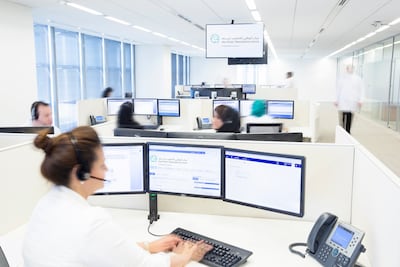The vast majority of British doctors do not trust Zoom-type consultations for accurate diagnoses of patients' ailments, a major survey has found.
Similarly, patients are increasingly concerned that so-called telemedicine fails to give them proper examinations, with 86 per cent stating it was worse than face-to-face consultations.
The University of Cambridge University, published in the journal Rheumatology, found that the move to phone and video appointments was convenient, but “disastrous” for some patients, with an increased risk of misdiagnosis.
The issue is particularly fraught in GP surgeries and the NHS has mandated that patients are able to see a GP in person if they choose, and has threatened to publish league tables of practices that offer the fewest in-person appointments.
Patients are increasingly angry at the difficulty they have in getting to see a doctor in person, amid a growing war of words between government and medical representatives over how GP practices should be run during Covid.
The majority of the 1,340 rheumatology patients surveyed this year stated that online appointments felt like a “rushed tick-list” and that telemedicine worsened existing health inequalities.
“My rheumatologist cannot see or hear how I move, look at my skin, eyes, hair, hands, bones, how I am,” one rheumatology patient said. “I was diagnosed with something over the phone, which I know isn’t right, and it’s getting worse.”

UK Health Secretary Sajid Javid has instructed GPs to see more patients in person and publish the proportion of appointments that take place online.
GPs responded by threatening industrial action. The British Medical Association’s GPs committee voted unanimously to reject Mr Javid's plan.
The pandemic has led to the proportion of in-person consultations dropping from 80 per cent to 61 per cent, with many patients now calling for a return to more face-to-face appointments.
Doctors too are concerned, with 93 per cent of the 110 surveyed, telling researchers that remote appointments were worse for assessments and diagnosis.
Some doctors said that NHS technology was “embarrassingly primitive” for delivering telemedicine, although others cited improvements that were implemented as a result of the pandemic.
The study stated that fewer in-person examinations and tests meant “misdiagnosis and inaccuracies were frequently reported”.
While the National Health Service is attempting to shift at least a quarter of all appointments to telemedicine, more than 90 per cent of doctors said they were "worse than face-to-face for building a trusting relationship”.
Clinicians were concerned that “telemedicine may be over-used by the NHS and hospital management as a cost and time-saving measure, rather being than in patients' best interests”.
One doctor interviewed believed that while Zoom-type consultations were “perfect for some” they were “disastrous for others”.
The survey is the first of its kind from the pandemic in which the growth of remote consultations has increased dramatically during lockdowns to stop the spread of Covid-19.
But it also reported that almost two thirds of clinicians and patients found telemedicine more convenient than face-to face consultations, with no travelling, reduced waiting times and minimal risk of Covid infection .
“I am very glad that telemedicine has become an option as it not only makes me feel more relaxed and safer, but I often have great difficulty getting to hospital,” one lupus sufferer said.
Melanie Sloan, the report’s lead author, said the new research exposed “the inherent risks and benefits of telemedicine for patients with complex conditions”, which could have important implications.
“As the NHS develops a telemedicine strategy, we hope there will be a thorough assessment of the clinical and psychological risks and steps taken to mitigate those risks,” she said.


